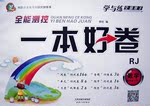
What's your dream vacation? Watching wildlife in Kenya? Boating down the Amazon? Sunbathing in Malaysia? New chances are opening up all the time to visit the world. So we visit travel companies, compare prices, and pay our money.
We know what our vacation costs us. But do we know what it might cost someone else? It's true that many poorer countries now depend on tourism for foreign income. Unfortunately, though, tourism often harms the local(本地的) people more than it helps them.
It might cost their homes and lands. In Myanmar, 5,200 people were forced to leave their homes among the pagodas(佛塔) in Bagan so that tourists could visit the pagodas.
Tourism might also cost the local people their jobs and dignity(尊严). Local workers often find only low-paying jobs in the tourist industry. And most of the money do not help the local economy(经济). Instead, money return to the tour operators in richer countries, When the Maasai people in Tanzania were driven from their lands, some moved to poor places of the city. Others now make a little money selling things or acting for photos.
Problems like these were noticed more than 20 years ago. But now tour operators and local governments are working together to begin correcting them. Tourists, too, are putting on the pressure.
The result is “ethical(合乎职业道德的)tourism”. Ethical tourism has people at its heart. New international agreements and rules can help protect the people's lands, homes, economies and cultures. The beginnings are small, though, and the problems are complex(复杂的).
But take heart. The good news is that everyone, including us, can play a part to help the local people in the places we visit. Tour operators and companies can help by making sure that local people work in good conditions and earn the money they should get.
They can make it a point to use only locally owned hotel, restaurants and guide services. They can share some money to help the local economy. And they can help the local people plan and manage tourism.
What can tourists do? First, we can ask tour companies to provide information about the conditions of local people. We can then make our choices and tell them why. And while we're abroad, we can:
Buy local foods and products.
Pay a fair price for goods and services and not bargain for the cheapest price.
Ask before taking photographs of people.
They are not just part of the scenery!
Let's enjoy our vacation and make sure others do, too.
1.Which of the following is not mentioned?
A. Local people protected the pagodas in Bagan well.
B. Tourists may stay in hotels opened by local people.
C. Local people are mainly provided with low-paying work.
D. Tourists had better not bargain with local people for a cheap price.
2. The underlined phrase "take heart" means" ".
A. pay attention B. take care C. cheer up D. give up
3. According to the passage, the writer thinks .
A. tourism is not a promising industry
B. dream vacations should be spent abroad
C. the problems caused by tourism are easy to settle
D. tourists should respect local customs and cultures
4.What is probably the best title for the passage?
A. Tourism Causes Bad Effects. B. Tourism Calls for Good Behavior.
C. Vacations Bring a Lot of Fun. D. Vacations Cost More Than You Think.
 全能测控一本好卷系列答案
全能测控一本好卷系列答案科目:初中英语 来源:2016届江苏灌云陡沟中学初一上学期第一次过关检测英语试卷(解析版) 题型:单项填空
—你若想知道别人的名字,你可以说: _____
A. Hello, What’s you name? B. Hello, your name is what?
C. Hell o,
what’s your name? D. Hello, What’re your name?
o,
what’s your name? D. Hello, What’re your name?
查看答案和解析>>
科目:初中英语 来源:2016届内蒙古七年级上学期九月月考英语试卷(解析版) 题型:单词拼写
请仔细看下面的句子,画出有错的一处(包括拼写、大小写、标点、用法等)并将正确的写在横线上。
1.I’m from China , I’m chinese . ___________
2.What’s you mother’s job ? _________
3.Is that your brother . ___________
4.These are my perants . ____________
5.This is my friend . He name is Tony Smith . ____________
查看答案和解析>>
科目:初中英语 来源:2014届山东省莱州市七年级上学期期中学业水平测试英语试卷(解析版) 题型:单词拼写
1.Good a_________,Helen.
2.The boy is Tom.His l_________ name is White.
3.Wang Xin’s E_________ name is Alice.
4.Nice to m_________ you.
5.Is that your c_________ game?
6.Jane is a teacher in that _________.(学校)
7.Lucy’s ruler is_________.(黄色的)
8.Your _________ (夹克衫)is nice.
9._________ (八)is my lucky(幸运)number.
10.What’s you phone_________?(号码)
11.How_________ (be)Helen?
12._________ (She)name is Jane.She is my friend.
13.Hello,_________ (me)name is Xiaomi.
14.His _________ (one)name is Tony.
15.Please_________ (call)685—6034.
查看答案和解析>>
科目:初中英语 来源:同步题 题型:填空题
查看答案和解析>>
科目:初中英语 来源:山东省期中题 题型:句型转换
查看答案和解析>>
湖北省互联网违法和不良信息举报平台 | 网上有害信息举报专区 | 电信诈骗举报专区 | 涉历史虚无主义有害信息举报专区 | 涉企侵权举报专区
违法和不良信息举报电话:027-86699610 举报邮箱:58377363@163.com